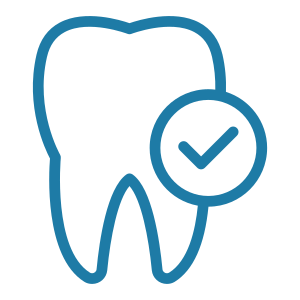Periodontal Care in Elmont, NY
Periodontal Care in Elmont, NY
Periodontal disease, also referred to as gum disease or periodontitis, is a progressive condition that starts when bacteria from plaque colonize the gingival tissue found in the mouth. This bacteria causes inflammation in the gums.
In the initial stage, called gingivitis, the gums become red and swollen and may bleed easily. Gingivitis is treatable and reversible.
Symptoms of Periodontal Disease
As periodontal disease progresses, symptoms can include the following:
- Swollen gums.
- Bright red or purplish gums.
- Gums that feel soft when touched.
- Gums that bleed.
- Bleeding gums while brushing or flossing your teeth.
- Bad breath.
- Pus between your teeth and gums.
Stages of Periodontal Disease
Periodontal disease is a progressive condition that eventually leads to the destruction of the tissues and jawbone that support the teeth. There are several stages of periodontal disease, which are listed below.
- Gingivitis
In this stage, the gums are swollen and red. The gums bleed easily and become very tender when touched. In this stage, the disease is still reversible, and the gums can be returned to good health with deep cleaning and daily brushing and flossing.
- Periodontitis
The gums begin to separate from the teeth, forming what is known as pockets. These pockets become infected, pus builds up in them, and they deepen over time. As the pockets deepen, the gum tissue, ligaments, and bone that hold teeth in place deteriorate. Teeth may become loose as well.
- Advanced Periodontitis
The pockets deepen even further. The gum separates from the tooth, and the tooth falls out or needs to be extracted. The jawbone deteriorates, and the teeth may begin to drift or shift. This can cause problems with a patient’s bite and make it more difficult to eat and speak.
Periodontal Disease - Diagnosis And Treatment
Diagnosing periodontal disease can be difficult since symptoms often mimic those of other oral health issues. A dentist can diagnose periodontal disease by examining the oral tissues for signs of inflammation and by evaluating medical and dental history.
First, your dentist will examine your gums to determine if periodontal disease is present. If gum disease is diagnosed, your dentist or dental hygienist will thoroughly clean the teeth. This process involves the removal of plaque and tartar from the teeth. The teeth will then be polished to prevent future buildup of plaque and tartar.
If periodontal disease has advanced to its severe stages, the treatments include:
- Antibiotics
- Flap surgery (pocket reduction surgery).
- Soft tissue grafts
- Bone grafting.
- Guided tissue regeneration.
Periodontal Disease - Prevention
To prevent periodontal disease, you should:
- Brush your teeth at least twice a day.
- Floss your teeth once a day.
- Visit your dentist for regular checkups and teeth cleanings.
- Limit your intake of sugary foods and drinks.
To learn more about the dental services offered by Sonkin Dental, call us at (516) 352-5614 or visit us at 1 Westgate, Elmont, NY 11003.
Visit Our Office
Say Hello
Office Hours
- Monday9:00 am - 6:00 pm
- Tuesday9:00 am - 8:00 pm
- WednesdayClosed
- Thursday9:00 am - 6:00 pm
- FridayClosed
- Saturday7:00 am - 4:00 pm
- SundayClosed


